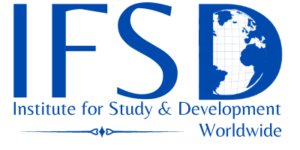Policy Lab
What is a Policy Lab?
Policy lab is a collaborative space that fosters co-design, co-experimentation, and co-development of innovative solutions to complex policy problems. It intends to bridge the gap between research and policy implementation by applying evidence-based approaches and interdisciplinary methods. It brings together a multidisciplinary team of experts who employ user-centric approaches, and engage in research, policy design, analysis, experimenting, and testing to inform policy decisions.
Policy labs typically operate within government agencies, think tanks, universities, or independent organizations. They address a wide range of policy areas, with some labs focused on specific areas while others adopt a cross-cutting approach to tackle complex and interconnected issues.
Who is it for?
Policy labs are intended for the wide range of stakeholders involved in the policy-making process. These include government agencies, policy makers, researchers and experts, local communities, NGOs, and the private sector. Depending on the policy areas, relevant stakeholders are invited to participate in the policy labs, where they can share insights based on the knowledge and experience. This allows for the inclusion of evidence-based research as well as local knowledge and experiences when addressing policy problems.
Why is it beneficial?
Policy labs play a crucial role in providing a structured and collaborative approach to solving complex policy challenges by fostering collaboration among experts to develop innovative and evidence-based solutions for policy challenges They also facilitate experimentation and testing of policy ideas in a controlled and iterative manner, allowing policymakers to identify and address potential issues before implementing policies at scale. They also emphasize stakeholder engagement and participation, ensuring that the perspectives of those affected by policies are heard and incorporated into the policymaking process. By engaging with stakeholders and forging partnerships across different sectors and disciplines, policy labs foster a more comprehensive and effective policymaking process.
Why IFSD prioritizes Policy Lab?
At IFSD, we adopt a system approach to catalyse climate resilient development across the Asia-Pacific and Africa. One of our key strategies is the use of policy labs, which provide collaborative spaces for innovative thinking, evidence-based research, and mulit-stakeholder engagement. We prioritize policy labs for several reasons:
- Impact: Policy labs have the potential to create significant impact by shaping public policies that affect a large number of people. By working with communities, governments, national and international development organisations, businesses, and research groups, policy labs help us design and implement policies that are evidence-based, effective, and responsive to the needs of the community.
- Innovation: Policy labs are a source of our innovation as we bring together a multidisciplinary team of experts who use cutting-edge research methods, and test new ideas to develop creative solutions to complex policy problems.
- Collaboration: Policy labs foster collaboration with stakeholders which support us in bringing gaps between different sectors and create a shared understanding of policy challenges and opportunities.
- Learning: Policy labs are an excellent platform for learning and capacity-building as they provide training opportunities for public officials, researchers, and other stakeholders to develop skills in policy analysis, design, experimentation, and implementation.
All of these opportunities enable us to stay at the forefront of policy innovation and development. IFSD has actively led policy labs related to the water, climate adaptation, and Loss and Damage sectors.
More information on the upcoming workshop titled “Designing Policy Lab: Theory, Methodology, and Case Examples“
